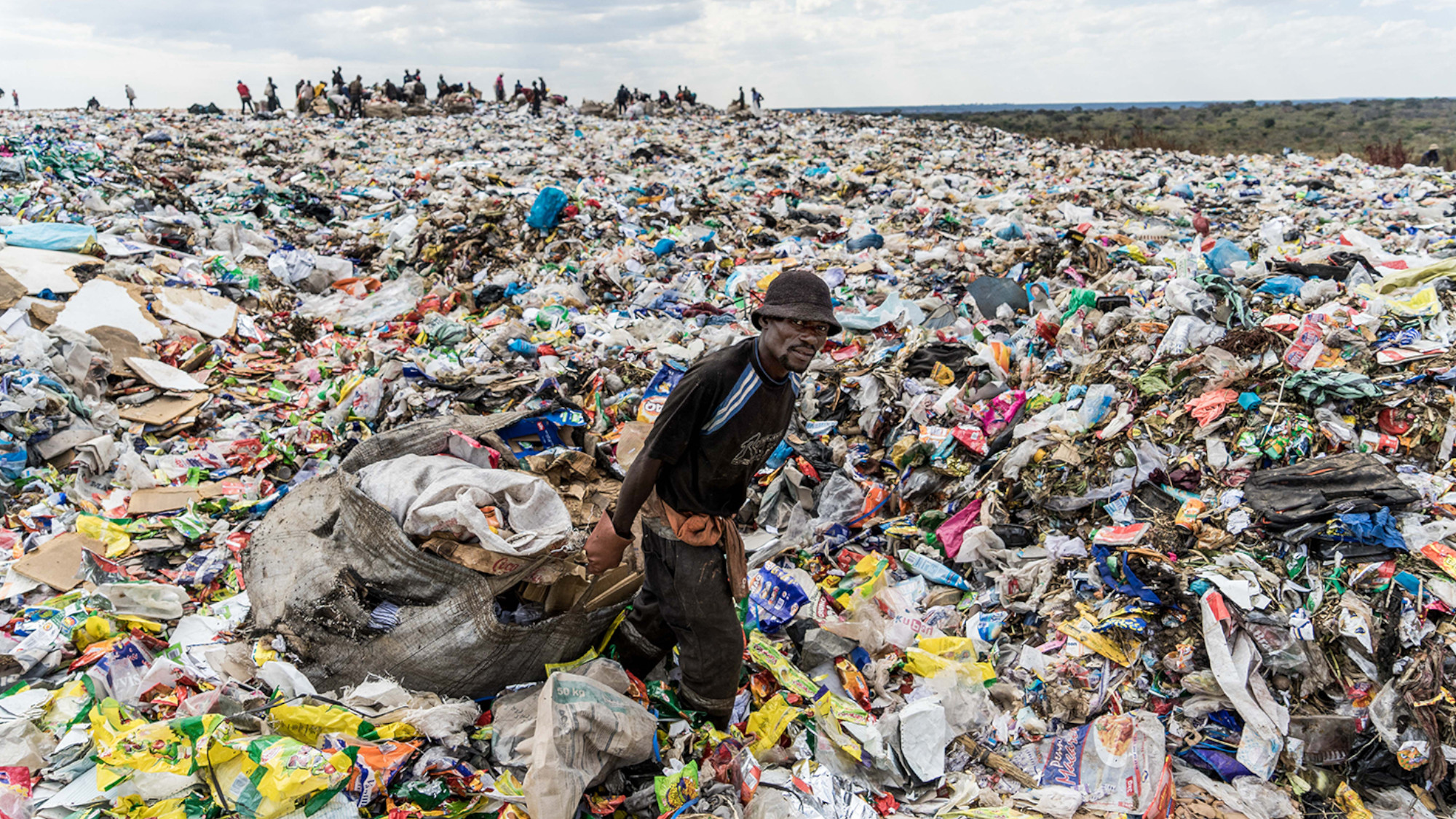Book reviews: ‘Waste Wars: The Wild Afterlife of Your Trash’ and ‘Love and Need: The Life of Robert Frost’s Poetry’
The dirty global trash trade and Robert Frost’s poetic life

A free daily email with the biggest news stories of the day – and the best features from TheWeek.com
You are now subscribed
Your newsletter sign-up was successful
‘Waste Wars: The Wild Afterlife of Your Trash’ by Alexander Clapp
“There is a reason why Mafia bosses tend to work in ‘waste management,’” said Andrew Anthony in The Guardian. “A shadowy and unpleasant commercial world that few want to look at too closely,” the garbage trade is big business, especially on a world scale, and journalist Alexander Clapp wants us to wake up to how damaging the international trash industry has become. Every minute, a garbage truck’s worth of plastic enters the ocean. Every day, 250 million pounds of clothes are discarded. Every week, humans manufacture their own weight in new things, and then toss 99 percent of those things within six months of purchase. Clapp worries about the global environmental impact, but he’s more focused on how wealthy countries dump on poor countries. His book, said Gavin Newsham in the New York Post, “reveals a planet drowning in its own trash.”
You may know much of this already, but “I bet there are few who know more than Clapp does now,” said Nicholas Lezard in The Telegraph (U.K.). He spent two years visiting the world’s slums, and “he has come to the conclusion that the default human activity for much of the world now is not farming: It’s picking through vast heaps of toxic rubbish.” At a vast dump outside Accra, the capital of Ghana, thousands of people living in tin shacks sustain themselves by retrieving precious metals from piles of electronic waste by burning the plastics, poisoning the air. The pickers also harvest stored computer data, some of it government secrets and some of it personal information that’s used to scam Western consumers. And the site is just one of countless end points in a destructive profit-driven system. “It’s hard to imagine any reasonably affluent Western reader reading this and not having their conception of the world fundamentally changed.”
The entire multibillion-dollar trash economy “operates on the periphery of legality,” said Dan Piepenbring in Harper’s. “It was built on the literal ashes of the toxic-waste disposal industry,” whose international export channels were largely shut down in the 1990s. But today’s waste gets rebranded as recyclables or fertilizer when it’s shipped south, and Clapp shows us how our discarded plastic forks wind up in Vietnamese villages, our broken TVs in Nigeria, and our dead batteries in Mexico, often rendering local food supplies toxic. “As indictments of globalism go, the trash trade is almost too perfect: too stupefyingly myopic; too ceaseless, vast, and sad.” Clapp writes with compassion and “abundant humor,” but the story he tells is deeply sickening.
The Week
Escape your echo chamber. Get the facts behind the news, plus analysis from multiple perspectives.

Sign up for The Week's Free Newsletters
From our morning news briefing to a weekly Good News Newsletter, get the best of The Week delivered directly to your inbox.
From our morning news briefing to a weekly Good News Newsletter, get the best of The Week delivered directly to your inbox.
‘Love and Need: The Life of Robert Frost’s Poetry’ by Adam Plunkett
More than six decades after Robert Frost’s death, “it’s hard to think of a better-known poet who is more difficult to know,” said Maggie Doherty in The New Yorker. “In both his poetry and his personal life, Frost was a trickster, saying one thing and almost always meaning another.” Beyond that, the New England bard (1874–1963) was so demonized by his first major biographer that his reputation as a man has never fully recovered. But now comes Love and Need, “a thorough, elegant, and, at times, surprising study of Frost” in which critic Adam Plunkett “brings together Frost’s personal life, literary sources, and publication history to enrich our understanding of the poems, then uses the poems to enhance our understanding of the life.”
“Frost’s life story contradicts his popular image,” said Abigail Deutsch in The Wall Street Journal. America’s “archetypal farmer-poet” grew up in San Francisco, the son of highly educated parents. He moved east with his mother at 11, married his high school sweetheart, fumbled an attempt at farming, and was teaching before, at 39, he published his first book of poems. Plunkett, however, “takes a mysteriously inventive approach to chronology, sometimes skipping past a central period only to double back to it later.” And while his prose is “usually elegant,” it “can grow as unkempt as the young Frost’s hair, with overlong sentences whose meanings point in multiple possible directions.” Despite those flaws, however, Love and Need “proves an illuminating tour of Frost’s life.”
Frost could be mean and egotistical, said Anthony Domestico in The Washington Post. After his wife died, he began, in his 60s, to obsess over his secretary, a far younger woman married to a friend. Unlike previous biographers who’ve painted Frost’s behavior as monstrous, Plunkett “reads Frost’s life like a responsible critic: sympathetic but not unduly so.” He focuses instead on the poetry, which he rightly characterizes as being at heart about the ambiguity of human motives. In Plunkett, “Frost has found an ideal biographer,” one who’s “possessed of an ear for the moral uncertainties that constitute his subject’s legacy.”
A free daily email with the biggest news stories of the day – and the best features from TheWeek.com